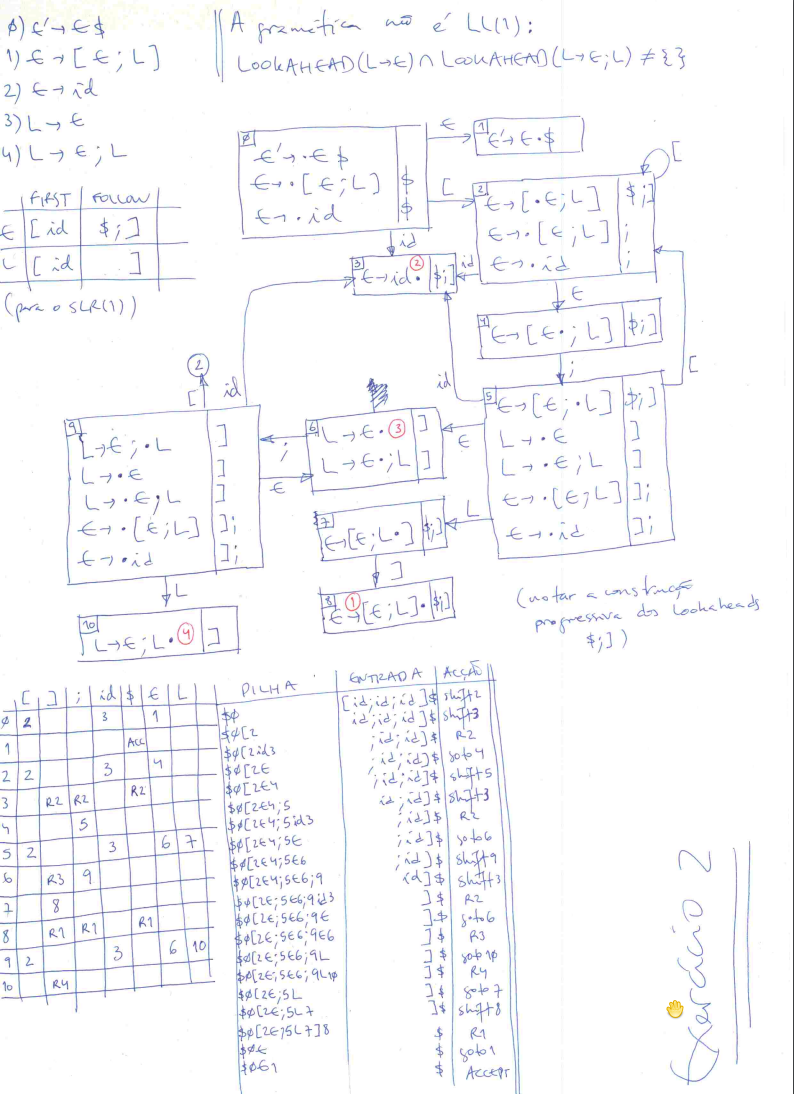Bottom-Up Parsing/Exercise 9: LALR(1): Difference between revisions
From Wiki**3
< Bottom-Up Parsing
(Created page with "== Problema == Consider the following grammar, where E is the initial symbol and { [, ], ;, id } is the set of terminal symbols: <text> E -> [ E ; L ] | id L -> E | E ; L </...") |
|||
| Line 11: | Line 11: | ||
== Solução == | == Solução == | ||
{{CollapsedCode|Solução completa| | |||
[[image:eobesclcb.png]] | |||
}} | |||
[[category:Compiladores]] | [[category:Compiladores]] | ||
[[category:Ensino]] | [[category:Ensino]] | ||
Revision as of 14:08, 21 April 2016
Problema
Consider the following grammar, where E is the initial symbol and { [, ], ;, id } is the set of terminal symbols: <text> E -> [ E ; L ] | id L -> E | E ; L </text>
- Compute the set of LALR(1) states for the grammar. Build the corresponding LALR(1) parse table.
- Show the parsing process for input [id;id;id] (including the actions/gotos and the input and stack states). In case of conflict, assume YACC's behavior.
- Is this an LL(1) grammar? Why?
Solução
| Solução completa |
|---|
